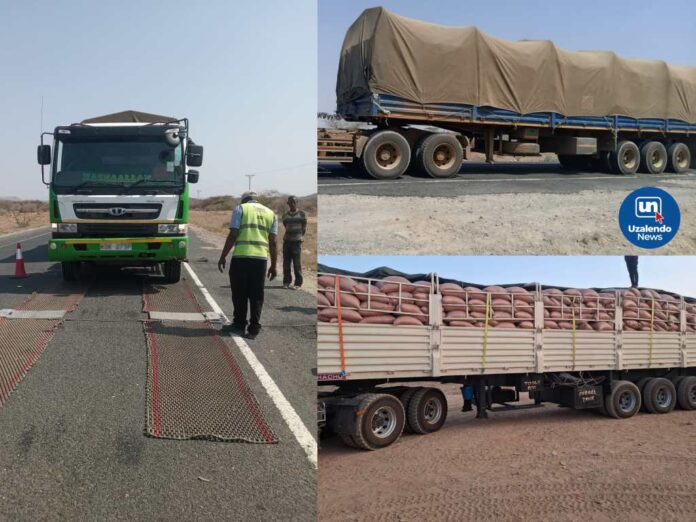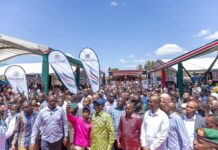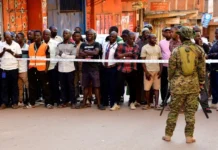The Kenya National Highways Authority (KeNHA) has intensified its campaign against overloading on key transport corridors, rolling out mobile weighbridge patrols and deploying virtual monitoring systems to rein in rogue transporters.
The crackdown, officials said, aims to curb damage to road infrastructure and ensure compliance with axle load regulations. Last month, a sting operation by KeNHA’s axle load team netted several offenders, with cases already before the courts.
On Sunday, a maize truck travelling from Isiolo to Moyale was intercepted by a mobile weighbridge team operating out of Juja Weighbridge.
The Daewoo vehicle, registration number KDE 273P, was found to be carrying a gross weight of 67,850 kilograms, nearly 36% above the legal limit of 50,000 kilograms. It was promptly impounded by KeNHA officers working alongside police and inspectors.
Jackson Kimuyu, Operations Manager at Danka Africa (K) Ltd, the KeNHA contractor overseeing the eastern region, said loose cargo transporters remain the greatest threat to axle load enforcement.
He noted that the company will deploy reinforcements and modern technology to identify and penalize offenders.
Kimuyu also expressed gratitude to the National Police Service, the Directorate of Criminal Investigations, and the county governments of Machakos, Kitui and Isiolo for supporting KeNHA’s efforts to protect road assets.
Enhanced axle load enforcement and strict adherence to the East African Community (EAC) Axle Load Schedule are among the conditions set by development partners, including the World Bank and the African Development Bank, as part of their financing and partnership frameworks.
Concerns over axle load abuse have persisted since 2013, when the World Bank petitioned then-President Mwai Kibaki to prioritize maintenance and enforcement in Kenya. Since then, axle load control has remained a critical aspect of road infrastructure management.
Kenya’s efforts have drawn regional attention, with countries such as Rwanda, the Democratic Republic of Congo, South Sudan, and Tanzania conducting benchmarking tours to study its systems and replicate best practices in their own transport networks.



















